
Strong to severe thunderstorms will bring scattered to widespread damaging winds and possibly several tornadoes overnight and Monday from the Ohio Valley into the Southeast U.S. Elevated to critical fire weather conditions will continue Monday over the southern High Plains. A Pacific storm will continue heavy mountain snow and gusty winds in California through Monday. Read More >
Corpus Christi, TX
Weather Forecast Office
In an effort to improve the quality and accuracy of a number of our forecast products, the Corpus Christi WFO will be making changes to the way certain products are created. Where this will be most visible to users is in longer range watches, warnings and advisories (not convective). We will be able to issue an advisory for just parts of counties. This will allow us to inform persons more closely impacted by certain conditions such as fog, wind, coastal flooding, and storm surge. For example, we can issue a dense fog advisory for coastal portions of counties when dense marine fog is occurring there, but no fog is occurring farther inland.
The following image is the current zone alignment along the Middle Texas Coast. These zones are specifically lined up with counties.
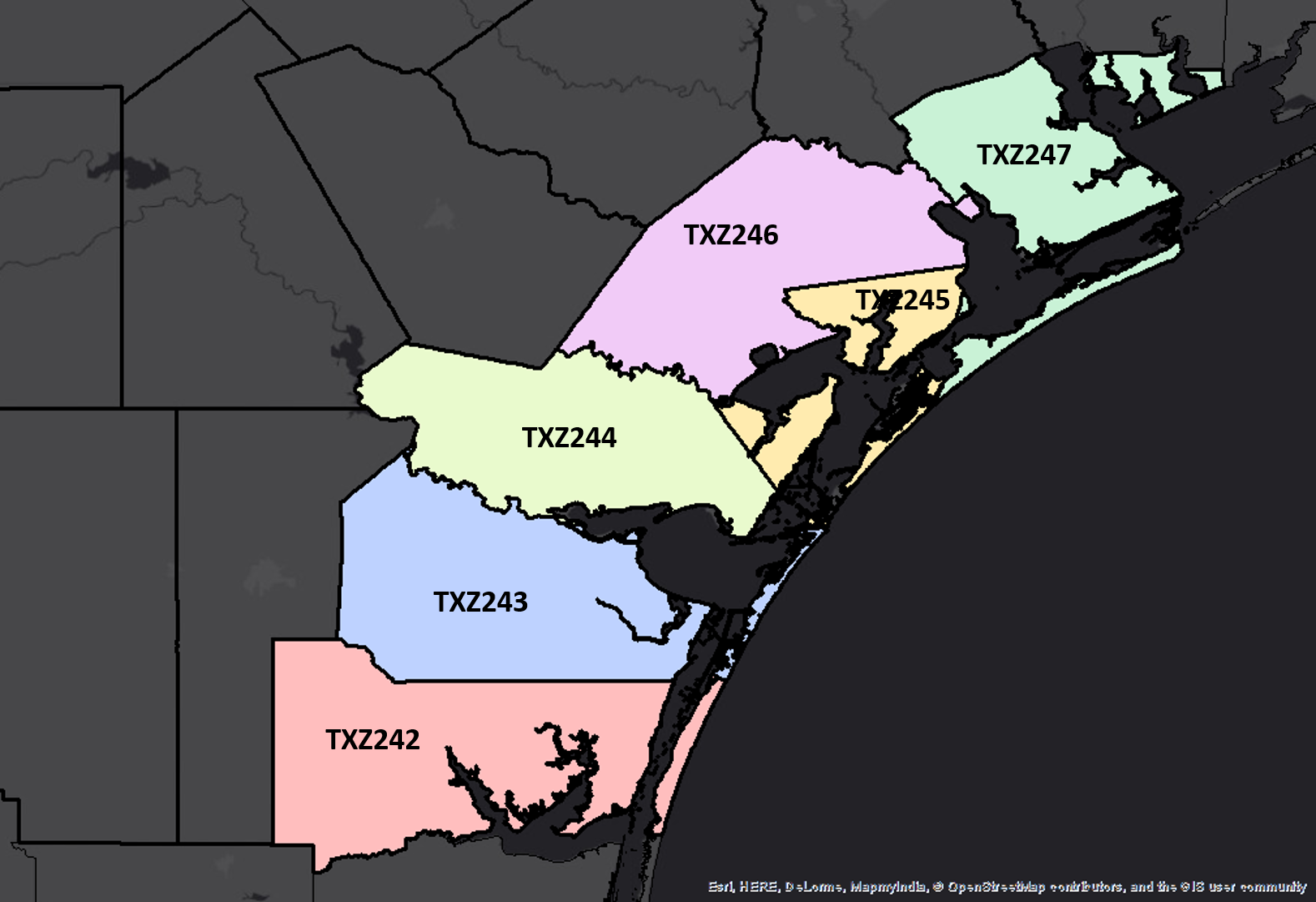
The following is how zones will look beginning May 1.
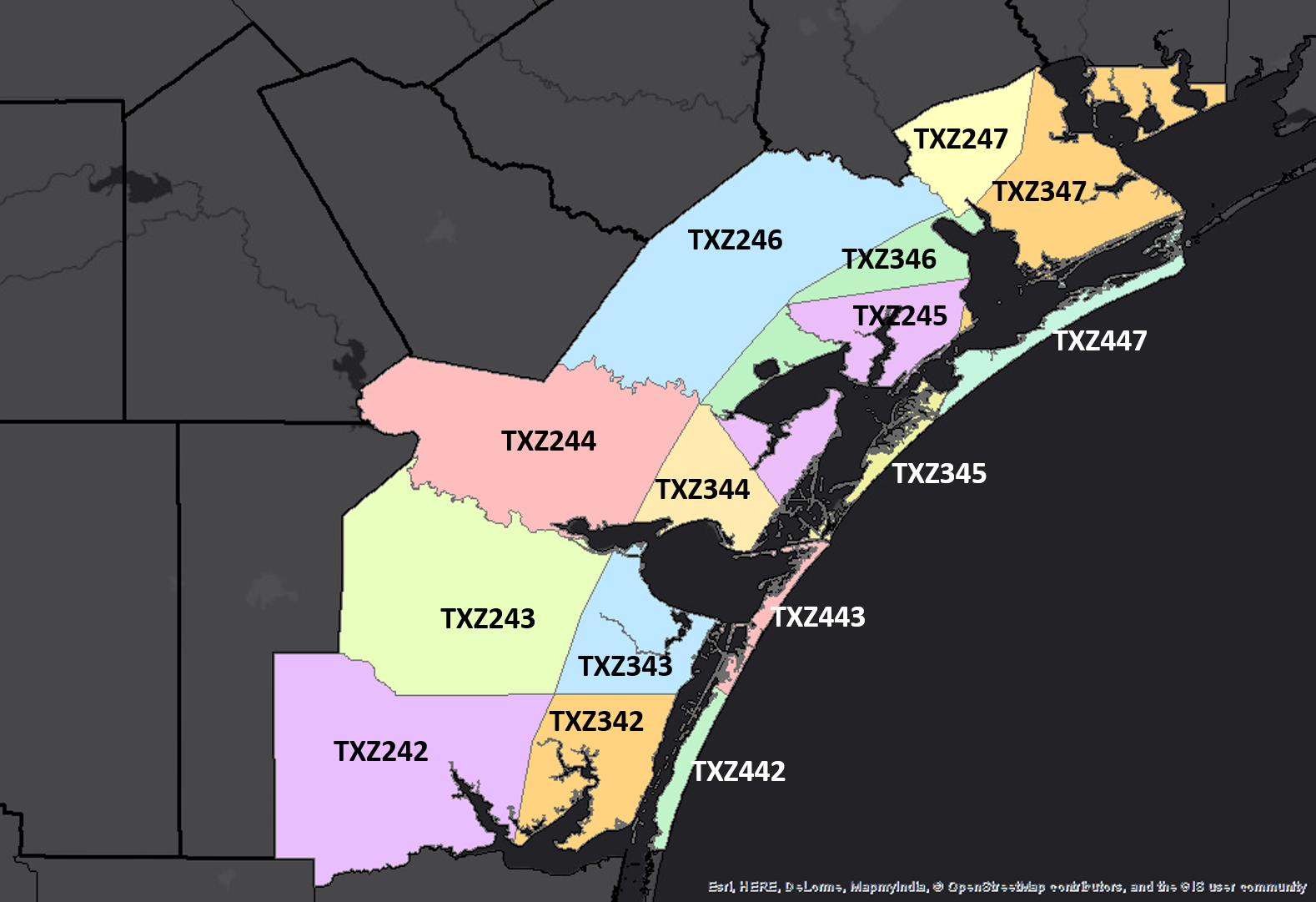
This new alignment will make it possible to issue products such as a dense fog advisory for only portions of counties that will be experiencing those condiitons, adding clarity to products and forecasts.
Below are examples of how a new watch/warning/advisory might look compared to the old look.
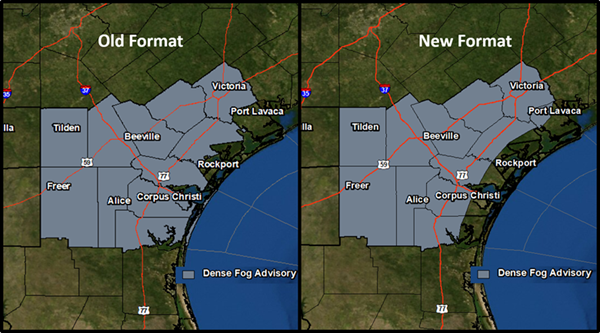
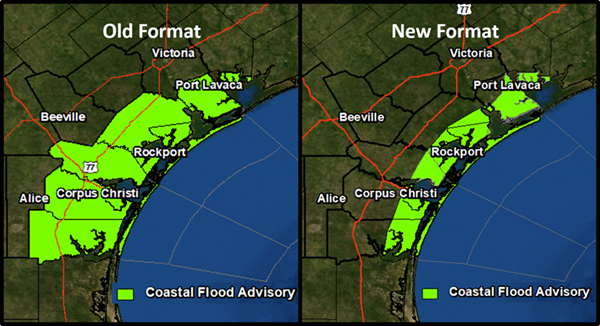
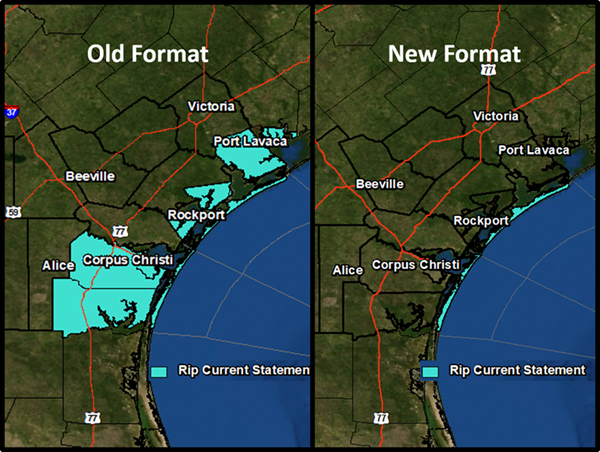
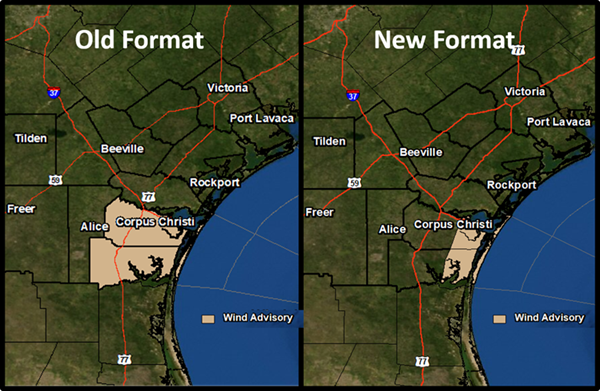
CURRENT HAZARDS
National Hazards Graphical
Local Storm Reports
Submit a Storm Report
Daily Video Briefing
CURRENT CONDITIONS
Detailed Observations Map
Hourly Weather Roundup
Local Satellite Page
Rivers and Lakes
GOES-East Satellite
MADIS Display
5-minute Observations
FORECASTS
Graphical
Marine
Tides
NWPS
Fire
Aviation
Activity Planner
National Outlooks
Extended Outlooks
TROPICAL
Local Tropical Page
Storm Surge Maps
English Hurricane Guide
Spanish Hurricane Guide
Past Tropical Cyclones
Storm Surge Threat
EDUCATION
Basic Weather Education
Online Weather School
Product Guide
US Dept of Commerce
National Oceanic and Atmospheric Administration
National Weather Service
Corpus Christi, TX
426 Pinson Dr
Corpus Christi, TX 78406
(361) 289-0959
Comments? Questions? Please Contact Us.
Thank you for visiting a National Oceanic and Atmospheric Administration (NOAA) website. The link you have selected will take you to a non-U.S. Government website for additional information.
NOAA is not responsible for the content of any linked website not operated by NOAA. This link is provided solely for your information and convenience, and does not imply any endorsement by NOAA or the U.S. Department of Commerce of the linked website or any information, products, or services contained therein.
You will be redirected to:

